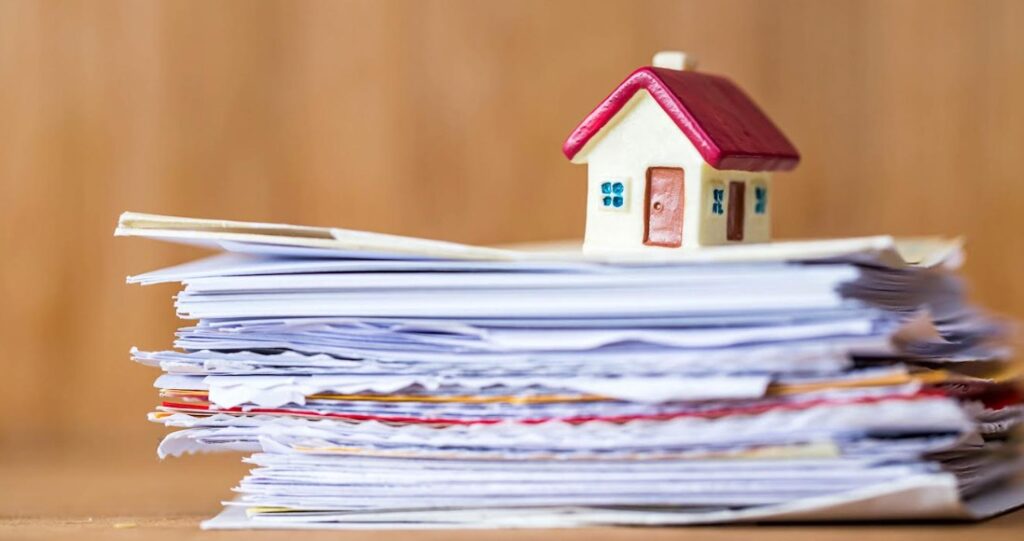Buying Property? Registration Alone Doesn’t Guarantee Ownership – Know These Legal Must-Haves Before You Sign

Buying Property? Registration Alone Doesn’t Guarantee Ownership – Know These Legal Must-Haves Before You Sign
For most people, owning a home is more than just a financial decision—it’s a lifelong dream. The moment they begin earning, many start putting aside money to make that dream a reality. Whether it’s a small apartment or a spacious house, property is often the biggest investment one will ever make. But what many don’t realize is that a simple signature on a registration document doesn’t always mean you’re the legal owner of the property. In fact, ignoring key legal documents can turn your dream home into a legal nightmare—and even lead to demolition.
Registration Is Not the Final Step—Understand What It Actually Means
A common misunderstanding among homebuyers is that once the property is registered in their name, they have full ownership rights. However, registration merely records the transfer of rights from the seller to the buyer. It does not necessarily confirm the seller’s legal ownership, nor does it protect you from previous disputes tied to the property.
To ensure you’re truly securing legal ownership, additional documentation is critical.
Title Deed and Chain of Ownership: Your First Line of Defense
One of the most important documents you must review is the Title Deed. This document proves who the legal owner of the property is. Without it, you can’t be certain that the seller has the right to transfer ownership.
Equally important is the Chain Deed, which shows the property’s history—how it has changed hands over time. This “chain of ownership” gives you a clear picture of whether the property has been sold legally in the past, and helps verify that there are no breaks, disputes, or fraudulent transfers along the way. Think of it as the property’s family tree—complete and continuous.
Beware of Fraud: Ownership Without Proof Is a Red Flag
If the person selling the property doesn’t have documents proving they legally own it, they simply don’t have the right to sell it. Without proper ownership documents and the chain of past agreements, any deal becomes risky and could be considered a fraud.
In such cases, even if the property is registered in your name, it may not hold up in court if challenged. Worse, you may end up losing both your investment and the property itself.
Check for Legal Disputes and Loans: The Encumbrance Certificate Is a Must
Another critical check before buying is to verify whether the property is free from legal or financial liabilities. The Encumbrance Certificate is your go-to document for this. It shows if there are any ongoing lawsuits, unpaid loans, or mortgages linked to the property.
Buying a property without checking this certificate could land you in trouble with banks, courts, or previous creditors. You don’t want to inherit someone else’s problems along with the house.
Municipal Approval: Layout and Building Plans Matter More Than You Think
Before finalizing the purchase, it’s essential to confirm that the property layout and building plans were approved by the local municipal corporation or development authority. Unauthorized constructions—especially those not built as per approved plans—are considered illegal.
This is where things can get serious. If your home isn’t built according to sanctioned blueprints, the authorities have the legal right to demolish it. Yes, a bulldozer could literally show up at your doorstep.
Occupation Certificate: Proof That the Property Is Livable and Legal
The Occupation Certificate (OC) is another document you must ask for before moving in. Issued by the local governing body, it confirms that the construction has been carried out as per approved plans and complies with all safety standards and building regulations.
Without an OC, the property is considered illegally occupied—even if you’ve paid for it and registered it. Moreover, you might struggle to get basic services like electricity and water connections.
Don’t Forget Property Tax Receipts: They Reveal More Than You Think
Before making any payment or signing a deal, inspect the Property Tax Receipts carefully. These show whether the previous owner has cleared all dues or if any taxes are pending. Outstanding tax liabilities can become your burden once the property is transferred to your name.
These receipts are not just financial documents—they also serve as proof of long-term ownership and help avoid legal issues with local authorities.
Buying a home is not just about selecting the right location or the best price—it’s about securing your future. Many fall into the trap of thinking a registered deed is enough, only to find themselves tangled in legal trouble later. Taking the time to verify every document, understand the history of the property, and ensure it’s legally approved and dispute-free is the only way to protect your investment.
Remember, a little effort today can save you from a lifetime of regret tomorrow. When in doubt, consult a legal expert before making any property purchase. Because when it comes to your dream home, you deserve nothing less than complete peace of mind.












